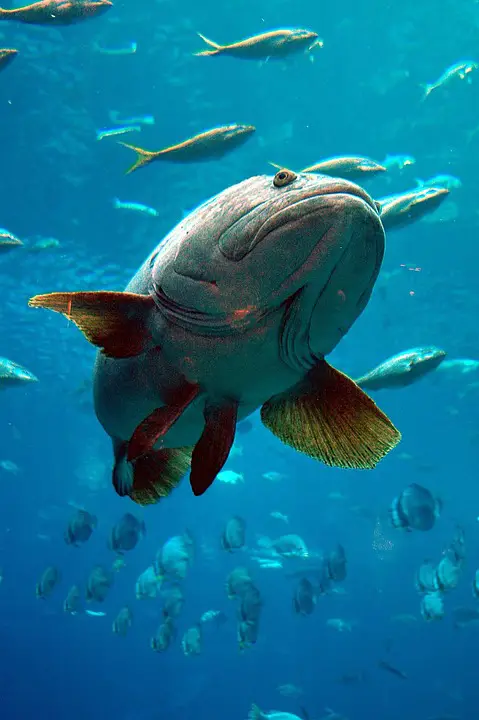Fishing in the Lithuanian wilderness offers a unique and immersive experience in nature. The country is home to numerous remote spots that are perfect for fishing, providing an opportunity to connect with nature in its purest form. In this article, we will explore the beauty of Lithuanian wilderness fishing and how it allows individuals to connect with nature in remote spots.
The Beauty of Lithuanian Wilderness Fishing
Lithuania is a country known for its stunning natural landscapes and abundant bodies of water. The wilderness areas of Lithuania offer a peaceful and unspoiled environment that is perfect for fishing. Whether it’s a serene lake, a meandering river, or a tranquil pond, the remote spots in Lithuania create the perfect backdrop for a fishing adventure.
Remote Spots for Fishing
There are several remote spots in Lithuania that are ideal for fishing. Some popular locations include Lake Plateliai, Lake Asveja, and the Šventoji River. These areas offer a diverse range of fishing experiences, from angling for trout in the rivers to catching pike in the lakes. The remote spots are often less frequented by tourists, providing a peaceful and undisturbed fishing experience.
Benefits of Lithuanian Wilderness Fishing
Engaging in fishing in the Lithuanian wilderness offers a multitude of benefits. Not only does it provide an opportunity to connect with nature, but it also allows individuals to relax, unwind, and escape from the hustle and bustle of everyday life. The act of fishing itself can be a meditative and reflective experience, fostering a deeper connection with the natural world.
Connecting with Nature
Fishing in the wilderness of Lithuania allows individuals to immerse themselves in the natural environment. It provides a chance to observe the local flora and fauna, and to appreciate the serene beauty of the landscape. This connection with nature can be incredibly grounding and rejuvenating, offering a respite from the stresses of modern living.
Conservation and Sustainability
It is important to practice responsible fishing and conservation efforts when engaging in wilderness fishing in Lithuania. By adhering to sustainable fishing practices, individuals can help preserve the natural beauty of these remote spots for future generations to enjoy. This includes following catch-and-release guidelines, properly disposing of waste, and respecting the natural habitats of the local wildlife.
Table: Sustainable Fishing Practices
| Sustainable Fishing Practices | Description |
|---|---|
| Catch-and-Release | Return caught fish safely to the water to preserve fish populations. |
| Proper Waste Disposal | Dispose of trash and fishing gear responsibly to minimize environmental impact. |
| Respect Wildlife Habitats | Avoid disturbing natural habitats and nesting areas of local wildlife. |
Conclusion
Fishing in the Lithuanian wilderness offers an unparalleled opportunity to connect with nature in remote spots. The serene and unspoiled landscapes provide the perfect backdrop for a peaceful and immersive fishing experience. By practicing sustainability and conservation efforts, individuals can ensure that these remote spots remain pristine for future generations to enjoy.
Frequently Asked Questions
1. How can I access remote fishing spots in Lithuania?
Access to remote fishing spots in Lithuania can vary, and some locations may require a permit or guide to visit. Researching local regulations and reaching out to fishing organizations can help in accessing these areas.
2. What are some common fish species found in Lithuanian wilderness fishing spots?
Common fish species include trout, pike, perch, and roach, among others. These species can be found in lakes, rivers, and ponds throughout the wilderness areas of Lithuania.
3. Are there accommodations available near remote fishing spots in Lithuania?
Some remote fishing spots may have nearby accommodations such as lodges, cabins, or camping sites. Researching lodging options in advance can help in planning a fishing trip to these areas.
4. What are some sustainable fishing practices I should follow in Lithuania?
Practicing catch-and-release, properly disposing of waste, and respecting wildlife habitats are essential sustainable fishing practices to follow in Lithuania. These efforts help preserve the natural beauty of the remote spots.
5. How can I contribute to conservation efforts while fishing in Lithuania?
Contributing to conservation efforts can involve participating in local clean-up initiatives, supporting conservation organizations, and spreading awareness about the importance of preserving the natural environment.
6. What are the best seasons for wilderness fishing in Lithuania?
The best seasons for wilderness fishing in Lithuania vary depending on the fish species and the specific location. Researching seasonal fishing patterns and local recommendations can guide the timing of fishing trips.
7. Are there guided fishing tours available in Lithuania?
Yes, there are guided fishing tours available in Lithuania that cater to both experienced anglers and beginners. These tours offer the opportunity to explore remote fishing spots with the guidance of knowledgeable local experts.
8. What types of fishing equipment are recommended for wilderness fishing in Lithuania?
Essential fishing equipment includes rods, reels, lines, hooks, and bait specific to the targeted fish species. Additionally, appropriate clothing and outdoor gear for varying weather conditions are important for wilderness fishing trips.
9. How can I learn more about the local regulations and guidelines for fishing in Lithuania?
Learning more about local regulations and guidelines can be accomplished through contacting local fishing organizations, accessing official government resources, and seeking information from experienced anglers familiar with fishing in Lithuania.
10. What are the potential environmental impacts of unsustainable fishing practices in remote spots?
Unsustainable fishing practices can lead to declines in fish populations, disruption of ecosystems, and degradation of natural habitats. It is crucial to practice responsible and sustainable fishing to minimize these potential environmental impacts.

